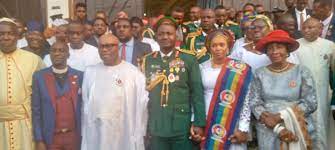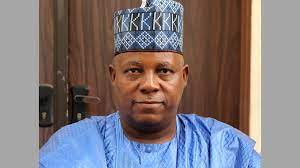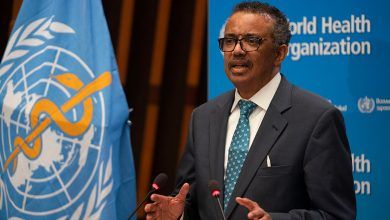Sierra Leone Elections: Samura Kamara of APC rejects President Julius Maada victory, calls for rerun

Sierra Leone’s main opposition the All Peoples Party (APC) had decided to formally rejected the results of the national election won by incumbent President Julius Maada Bio, citing “glaring irregularities”, and called for a rerun of the June 24 poll.
Bio was re-elected for a second term with 56% of the vote, narrowly avoiding a run-off against main rival Samura Kamara of the opposition All People’s Congress (APC).
Although, Kamara has questioned the official tally, while European election observers noted statistical inconsistencies.
In its first official statement on the full results, the APC said on Friday it rejected the outcome “given the glaring irregularities and violations of established electoral procedures.”
“We can no longer tolerate injustice, tyranny and usurpation of power in Sierra Leone. This is what dictatorship looks like,” it said.
Information Minister Mohamed Rahman Swaray dismissed the APC’s call for a second vote.
“A rerun after an official declaration of results and a swearing-in ceremony is unconstitutional,” he said by phone to Reuters.
“It can only happen through a Supreme Court decision. Otherwise no political party can arrogate themselves that right or power. It’s wishful thinking.”
The APC also demanded the resignation of election commission officials, a rerun of presidential and parliamentary elections within six months, and said it would ask foreign powers to impose travel bans on Bio, his wife and a string of ministers and senior officials.
In response, Swaray said: “A president who has led his people so well that they just renewed his mandate through democratic means cannot be subjected to sanctions.”
Results of parliamentary and local council elections are expected later on Saturday, but the APC said it would also reject these and would not participate in any level of governance.
“That’s entirely their discretion. We want a truly multiparty parliament but it is their choice to make. I hope they’ll reconsider that decision,” Swaray said.
The standoff could worsen tensions that led to violence breaking out before, during and after the vote.
The United States, Britain, Ireland, Germany, France and the EU last week said they shared the concerns about a lack of transparency in the vote-counting process, and that significant logistical problems had hampered voting in certain areas.
The election commission has said it will publish disaggregated results data per polling station to allow for closer public scrutiny of the results, but warned this will take some time.





